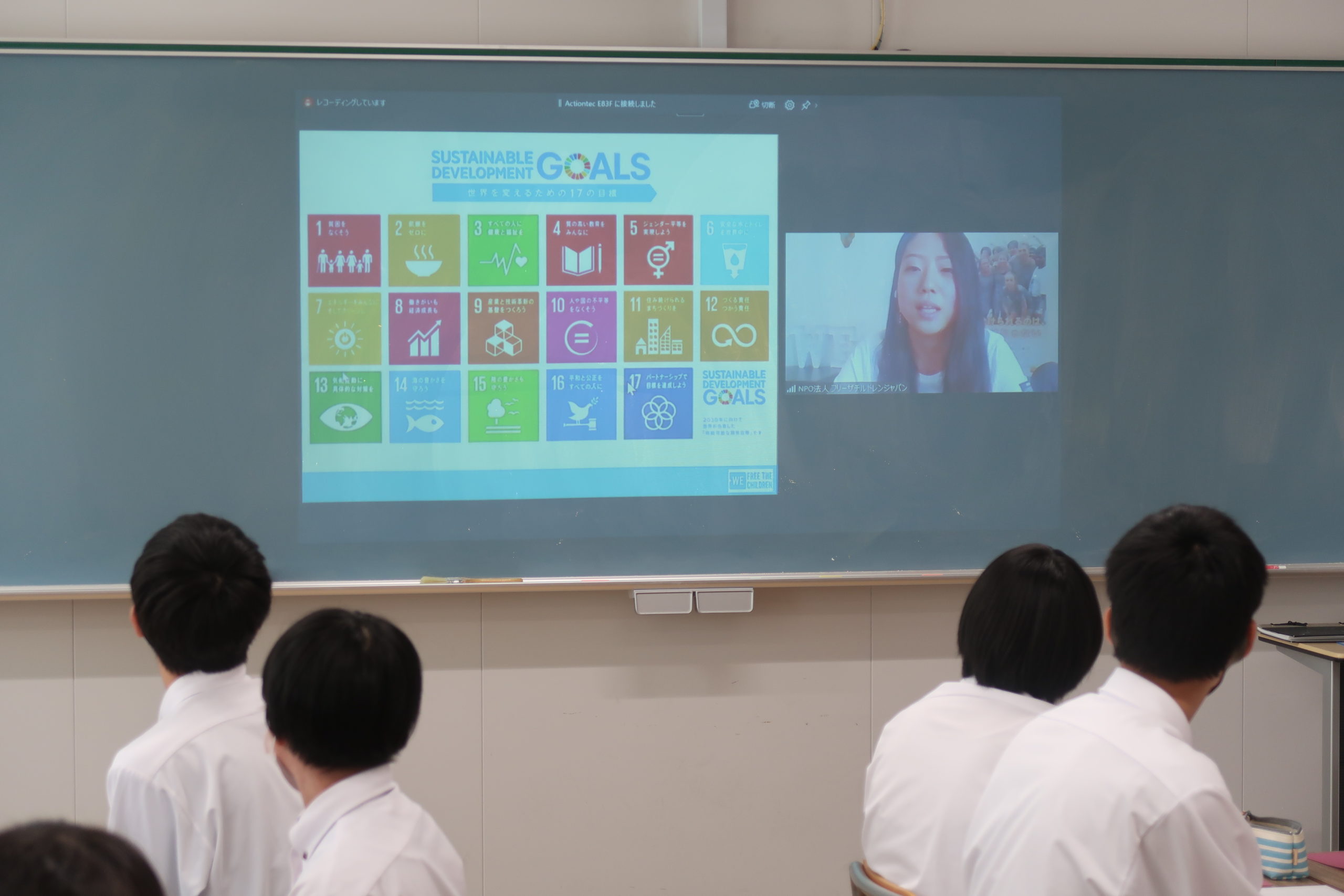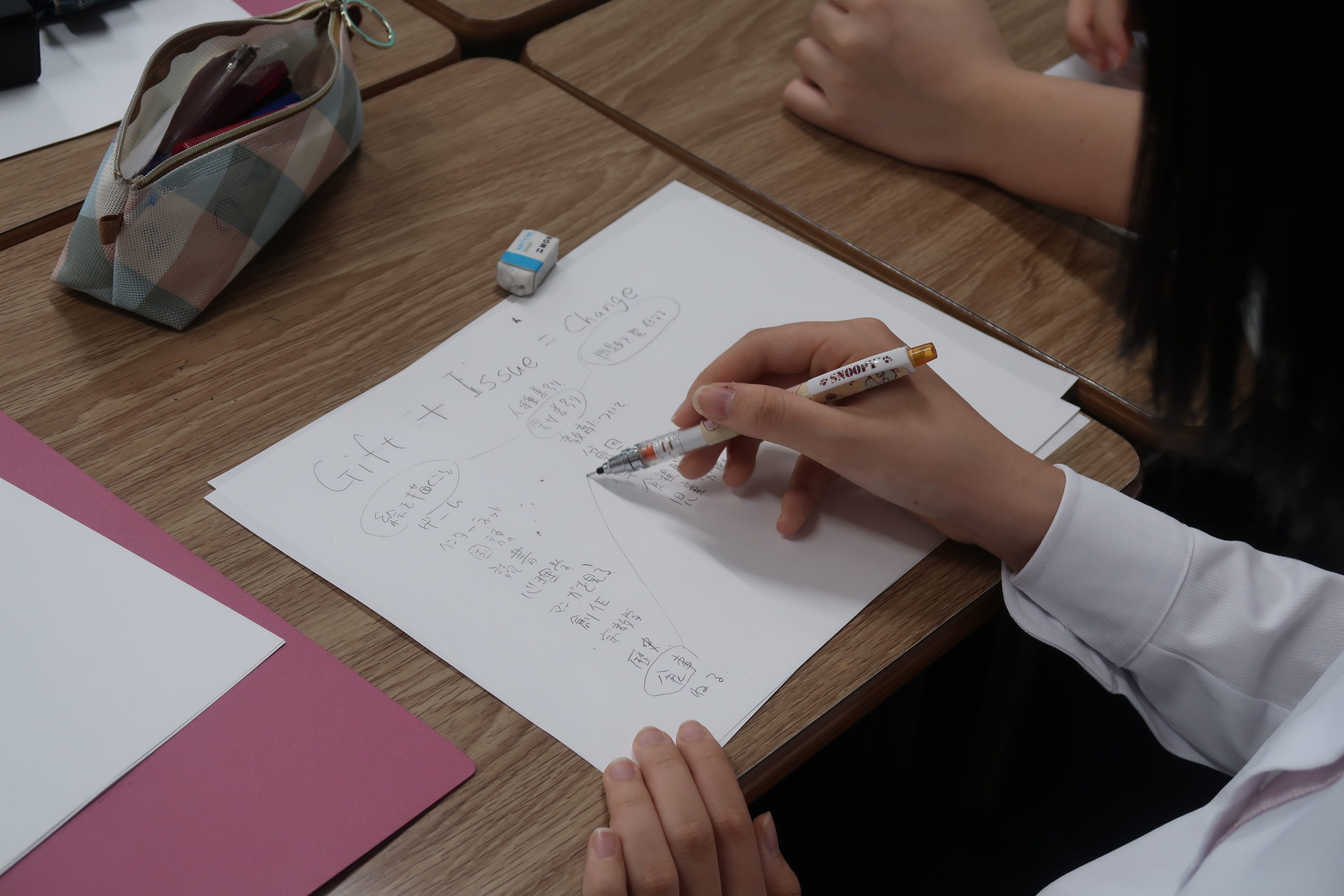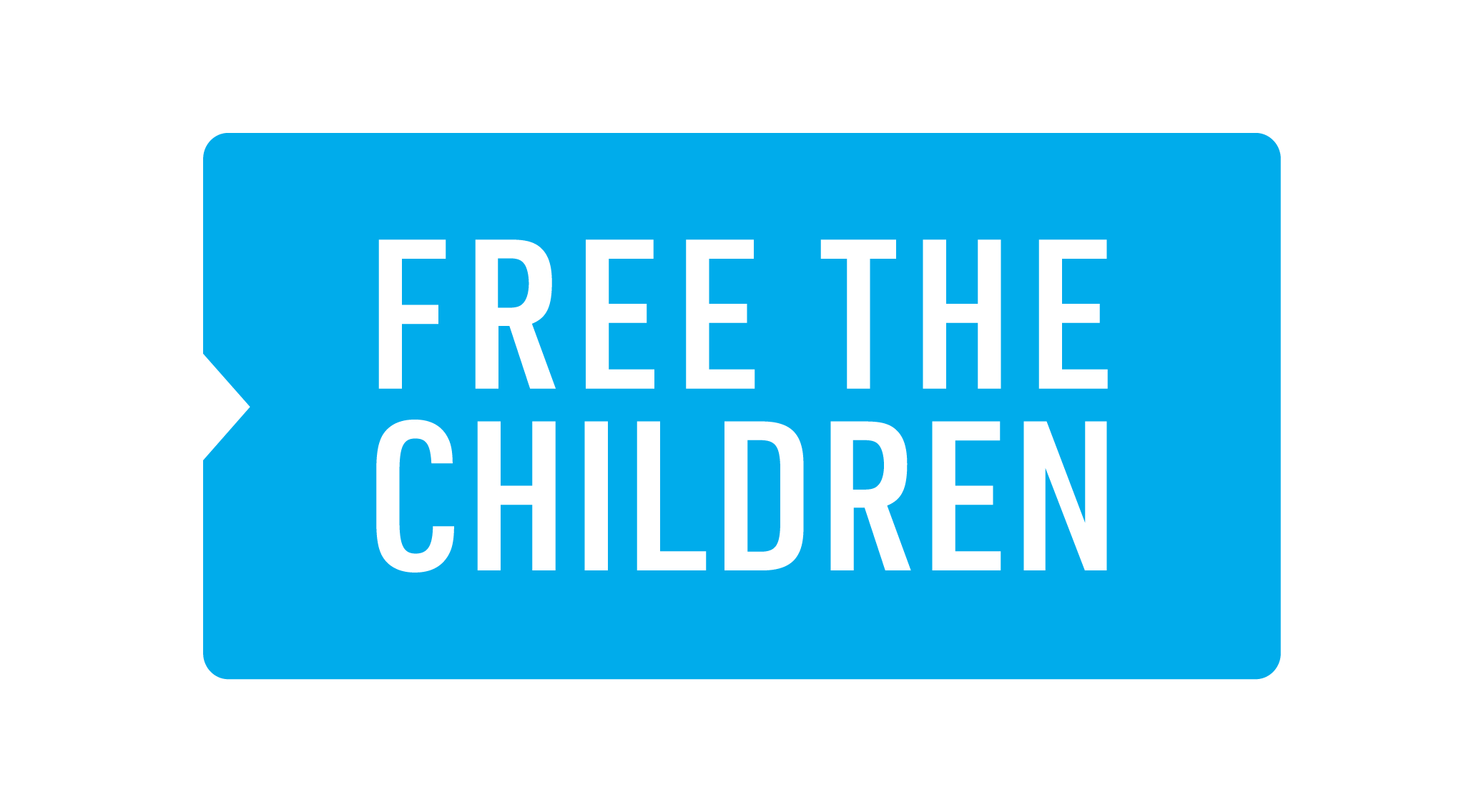Online and In-person seminar at Tottori Johoku High School

We’ve been collaborating with Tottori Johoku High School through our WE World Changer throughout the past year, and we conducted seminars to first year high school students on 11 May and 29 June. On the 11 May, we conducted an online seminar with all students, teachers, and our staff participating, and on 29 June we conducted a mix of online and in-person seminar targeting 25 students.
The themes of both seminars were ‘Getting to know social issues’ and ‘What we can do now’, and through integrating group work activities, we ensured the seminars were interactive.
Our first seminar on the 11 May posed many challenges, as Japan was under a state of emergency, and the students had only met each other a few times, since the new school year had only just started. As the seminar was held completely online on Zoom, it was a completely new experience for students, teachers and our staff.
While it was challenging to communicate online with everyone, we overcame this through using the chat function, and splitting the students into small group work activities, to effectively exchange opinions.
Lesson Outline
Target: 70 students in the academic course
Time: 90 minutes (split into 2 sessions)
Objective: Improve knowledge and understanding surrounding social issues, and to learn how to take action
Lesson Content:
- Introducing Free the Children Japan (How we were founded, what we do)
- Sharing our knowledge about social issues (eg. Poverty, education, water and sanitation, agriculture and food supplies, medical care, income, etc.)
- How to take action
- Group discussion with the topic: “Out of education/water and sanitation/agriculture and food supplies/medical care/boosting income, what is the most important factor in eradicating poverty?
- Group work: Coming up with ideas of how to take actions and how to tackle each issue. The group with the most ideas wins.
Our seminar on the 29 June was again held with a mix of online and offline activities, as while the high school was open with lessons operating as normal, we factored in the risks of our staff travelling from Tokyo. We connected our staff members with the student who all connected with us from their classroom.
In the lecture section, as we wanted to widen the student’s understanding towards social issues, we projected our presentations in the class to present our resources. In the group work section, we held quizzes, with students answering the questions posed by our staff.
To allow us to hear the student’s opinions and their thoughts, the teachers kindly walked through the classroom with their laptops.
While the event was virtual, we felt like we were there with the students, and we appreciate the teacher’s hard work for making this seminar possible.
Lesson Outline
Target: 25 students in the academic course
Time: 90 minutes (split into two sessions)
Objective: To deepen understanding of SDGs, and to brainstorm
actions we can take to solve social issues of interest
Lesson Content:
- SDGs and the current situations around social issues
- How to take action
- Speech by staff
- Group work
Group work menu:
-
- Problem Pictionary: One group member tries to express the given problem through drawing, and the other members tries to guess what the problem is
- Social issues data quiz: Group quiz battle with problems around social issue data
- Brainstorming actions- GIC work: Using the framework of GIC (Gift + Issue = Change), where your gift is your interests or talent, issue is a social issue of interest, and change is the action you take, brainstorming actions we can take

Testimonials from students
May 11
- I was able to learn about various social issues such as poverty, and this seminar gave me a chance to seriously think about these issues
-
I was able to learn about the realities behind world poverty. Something I learned was that the number of children dying each day is equivalent to the number of lives lost in the 2011 Tohoku Earthquake. I hope to further my knowledge and open my mind through further learning about these topics
-
It was heart-breaking to find out that children around the same age as me, or even younger were working as child labourers.
-
I was able to realize how blessed I am to live such a fortunate life in Japan. From now on, I hope to participate in activities about poverty or child labour.
-
I had initially thought I’m too young to change the world, however I learnt that that’s not true, and that even people as young as us can make a change.
-
My main takeaway from today is ‘you are never too young to take action. Young people are not only leaders of tomorrow, but also leaders of today.’ In our group, we discussed how our phones can be used as a media to tackle poverty. I think we can make a change regardless of how young we are, and I’ve realised the importance of actively tackling social issues.
-
Previously, I thought that saving children around the world was unrelated to me, however I was mistaken. I learnt that children around the same age as us were actively tackling social issues, and realized this was something I could also get involved in.
-
I enjoyed the group discussions where we all shared our opinions. I was impressed by the ideas everyone was giving, pushing me to brainstorm more.
-
The group discussions were interesting as some of the ideas thatcame up were ones that I would’ve never thought about.
-
When discussing what actions we can take during the group discussion, I really liked the idea of expressing our views through theater or music during our school festivals, as theater and music are universal, and so are likely to resonate with more people.
- I want to focus on the small things I can do, but with great love
June 29
- The number of children who can’t attend school, the number of child labourers and the number of unregistered children were all much higher than what I had expected. I realized how there isn’t only one global challenge, but rather many factors and challenges intertwined.
-
There were so many things I learnt today, from poverty to children who can’t go to school. I was able to realize the importance of looking at everything on a global scale.
-
I realized how blessed I am to be able to go to school everyday and to eat three meals a day.
-
I learnt that there are so many people in the world who are suffering. This is something we shouldn’t forget, especially because we are so blessed to be living such a convenient and comfortable life.
-
I think it’ll be fun to solve global issues through my hobbies and interests. However, I’ve also questioned whether it is okay to ‘have fun’. This seminar really forced me to think of what I can do. Even if we can only take small actions, through continuing it, it can lead to long-term change, and I hope I can make some kind of positive change.
-
Initially, I believed it was challenging to initiate global change or to come up with ideas of what I can do, however I learnt that I can make a change through my interests. I will continue to brainstorm what I can do to make a change now.
Testimonials on Problem Pictionary (Group work)
- I realized how challenging this game can be if we don’t fully understand the theme/question given. I was surprised by how everyone understood the simple drawings I drew. Through this game, I was able to realize how important words are.
- Even though we were only allowed to see drawings and pictures, I realized how important it is to express our emotions and feelings through expressions.
-
It was difficult to express the theme through just pictures, and it took some time for the others to guess the theme, however we were all thrilled when we got the question right.
Testimonials on the speech by our staff members
- I sympathized with the anxiety people feel when they don’t have a dream, and with Taichi’s experience in high school. Hearing that they were able to find something they really like through various experiences inspired me. To hear that I can continue doing what I like and what I’m interested in was memorable.
- I learnt that even if you don’t have a dream, through analyzing our interests, we can easily find it. This was something I had never thought about, so it inspired me to think about my dreams or my interests again properly.
Gift + Issue = Change ideas from students
- Football + Human rights issues = Increase interaction through tournaments
-
Volleyball + Poverty = Organise a tournament and have the proceeds from the tournament (participation fee, merchandise sales) go towards charity
-
Music + poverty = Charity songs (eg. We are the World by Michael Jackson)
-
DIY + Poverty = Selling handmade recycled goods with proceeds being donated
-
Music + Human rights issues = Using social media relay challenges to connect words appealing to human rights, and make a song out of it. Through this, we can raise awareness of human rights issues.
-
Drawing + Child poverty = collaborate with your friends and draw drawings expressing poverty, then post it on social media and encourage everyone to share it to raise awareness
There are so many different actions we can take!
Thank you to all students and staff of Tottori Johoku High school who made this event possible. We are already looking forward to the next seminar in August.
Free the Children Japan is accepting any requests to hold similar seminars throughout the year.
Please do not hesitate to contact us if you are interested.
